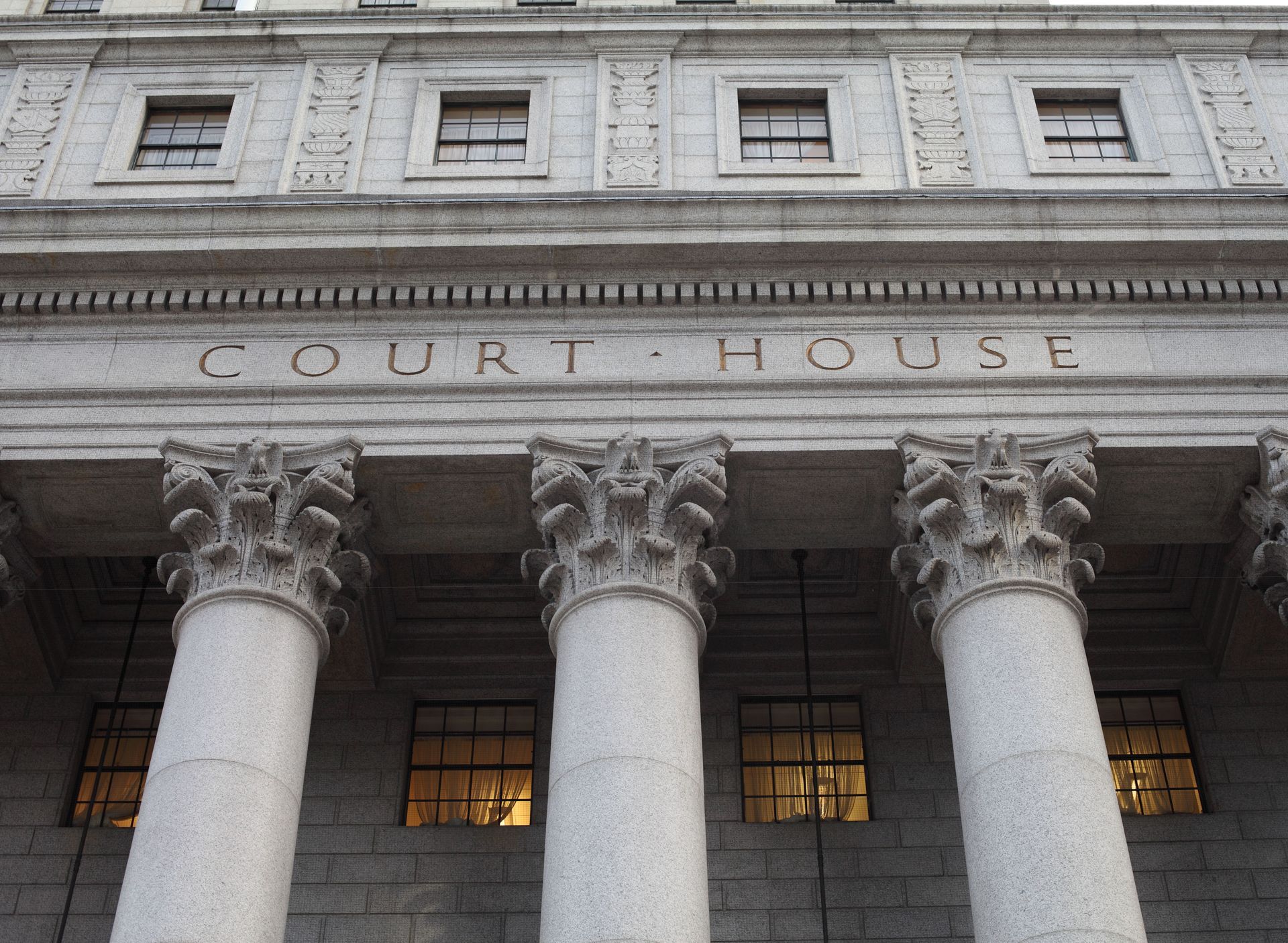When Can You Appeal a Court Decision in Texas? What Burleson Clients Should Know
November 19, 2025
November 19, 2025
Highlights:
- Learn when and why you can appeal a court decision in Texas.
- Understand the deadlines and procedures involved in filing an appeal.
- Discover which types of cases are eligible for appeal.
- Get insights from a Burleson, TX attorney with strong appellate experience.
- Read FAQs and fun facts about Texas appeals and the broader legal industry.
- Written by Michael J. Rogers, P.C., proudly serving clients throughout Burleson, Texas.
Court decisions carry significant weight. Whether it’s a criminal conviction, civil judgment, or family law ruling, the outcome of a case can shape a person’s future for years. But what happens if you believe a mistake was made? In Texas, the appeals process exists to protect your rights and to correct legal errors that may have occurred during trial.
At Michael J. Rogers, P.C., we understand how complex and high-stakes appellate matters can be. As a Burleson, TX attorney with strong appellate experience, we guide clients through each step of the process — from reviewing trial records to arguing before appellate courts.
This guide explores when you can appeal, what the process looks like, and what to expect if you’re considering challenging a court’s decision in Texas.
Understanding the Right to Appeal in Texas
An appeal is not a retrial. It’s a formal request for a higher court to review a lower court’s decision for legal or procedural errors. Appeals are based on the argument that something went wrong in how the trial was conducted — not necessarily that the verdict was unfair or that you disagree with the outcome.Appeals in Texas are governed primarily by the Texas Rules of Appellate Procedure. These rules set deadlines, documentation requirements, and limits on what evidence can be considered.
FAQ #1: Common Questions About Appeals
Steps in the Texas Appeals Process
- Notice of Appeal
The first step is filing a notice of appeal with the trial court. This document informs the court and opposing party that you intend to challenge the decision.
- Preparing the Record
The appellate record includes trial transcripts, exhibits, and court filings. Accuracy here is vital, as appellate judges rely on this record for their review.
- Writing the Appellate Brief
Your attorney submits a written argument explaining the legal basis for the appeal. This is where strong legal reasoning and deep knowledge of case law matter most.
- Oral Arguments
In some cases, the appellate court schedules a hearing. A Burleson, TX attorney with strong appellate experience may present oral arguments, answering questions from the judges.
- Decision Issued by the Appellate Court
The appellate court may affirm, reverse, or remand (send back) the case. The ruling can often be appealed further to the Texas Court of Criminal Appeals or the Texas Supreme Court, depending on the case type.
The Difference Between Trial and Appellate Law
While trial lawyers focus on presenting evidence and witness testimony, appellate lawyers specialize in analyzing legal issues and written arguments. Appeals are decided by panels of judges rather than juries.According to the Bureau of Labor Statistics , there are over 846,000 lawyers employed nationwide, with many specializing in niche areas like appellate practice. This specialization reflects the highly technical nature of appeals. Appellate work requires meticulous attention to detail and strong analytical writing. A Burleson, TX attorney with strong appellate experience must be adept at identifying legal errors and framing persuasive arguments supported by precedent.
Did You Know?
According to
Rev,
roughly 36% of lawyers report that their practice area has become more competitive in the last five years, partly due to specialization like appellate law.
This shows how important it is to choose an attorney who not only understands trial work but also excels in appellate strategy.
According to Clio , attorneys spend nearly 60% of their time on administrative work, leaving limited capacity for in-depth legal research. This makes choosing a lawyer with focused appellate knowledge especially valuable.
Moreover, Rev.com notes that attorneys specializing in appellate and post-conviction cases often have among the highest success rates in achieving case reversals compared to general practitioners.
A Burleson, TX attorney with strong appellate experience like Michael J. Rogers, P.C. dedicates time to research, strategy, and meticulous review — crucial for appellate success.
Many clients believe that an appeal guarantees another trial. In reality, appeals address legal mistakes, not factual disputes.
Other misconceptions include:
This shows how important it is to choose an attorney who not only understands trial work but also excels in appellate strategy.
Statistics on Appeals and Attorney Trends
Appeals represent a small but essential part of the justice system. They maintain fairness and consistency across Texas courts.According to Clio , attorneys spend nearly 60% of their time on administrative work, leaving limited capacity for in-depth legal research. This makes choosing a lawyer with focused appellate knowledge especially valuable.
Moreover, Rev.com notes that attorneys specializing in appellate and post-conviction cases often have among the highest success rates in achieving case reversals compared to general practitioners.
A Burleson, TX attorney with strong appellate experience like Michael J. Rogers, P.C. dedicates time to research, strategy, and meticulous review — crucial for appellate success.
Common Misconceptions About Appeals
Many clients believe that an appeal guarantees another trial. In reality, appeals address legal mistakes, not factual disputes.
Other misconceptions include:
- “The appeal will delay enforcement indefinitely.” In some cases, yes — but not always. Courts can enforce parts of the judgment while the appeal is pending.
- “Appeals always take years.” While complex appeals can be lengthy, many cases are decided within 6–12 months.
- “You can appeal repeatedly until you win.” Courts limit appeals to legal grounds; not every disagreement qualifies.
FAQ #2: Texas Appeals and Legal Representation
The Importance of Skilled Appellate Representation
Appellate law is one of the most technical areas of practice. It’s about precision and persuasion — knowing how to find and argue legal issues in a way that resonates with appellate judges.The legal industry continues to grow, with strong demand for experienced lawyers in specialized areas like appeals. A Burleson, TX attorney with strong appellate experience must be more than just a litigator — they must be a strategist, writer, and legal scholar rolled into one.
How Michael J. Rogers, P.C. Handles Appeals
At Michael J. Rogers, P.C., we pride ourselves on careful preparation and aggressive advocacy. Every appeal we handle begins with a comprehensive case review. We identify potential legal errors, research applicable case law, and develop compelling written briefs designed to withstand judicial scrutiny.We understand that clients are often emotionally and financially invested in their cases. That’s why we maintain transparent communication throughout the process — helping you understand each stage, expected outcomes, and possible next steps. Our approach combines local insight, state-level appellate knowledge, and a relentless focus on achieving justice for our Burleson clients.
Final Thoughts
Appealing a court decision is not about starting over — it’s about seeking justice when the law wasn’t applied correctly. Texas appellate courts exist to protect fairness, consistency, and due process.
At Michael J. Rogers, P.C., we take pride in being a
Burleson, TX attorney with strong appellate experience
dedicated to helping clients pursue rightful outcomes. Whether your case involves criminal charges, civil disputes, or family law matters, our office can guide you through each phase of the appellate journey with professionalism, diligence, and compassion. If you believe your case deserves another look, contact our Burleson office today to discuss your legal options.- Texas has 14 intermediate courts of appeals, each covering specific geographic regions of the state.
- The Texas Court of Criminal Appeals is the highest court for criminal matters, while the Texas Supreme Court handles civil appeals.
- Fewer than 10% of all appeals nationwide result in a complete reversal — meaning most appellate victories involve partial modifications or remands.




